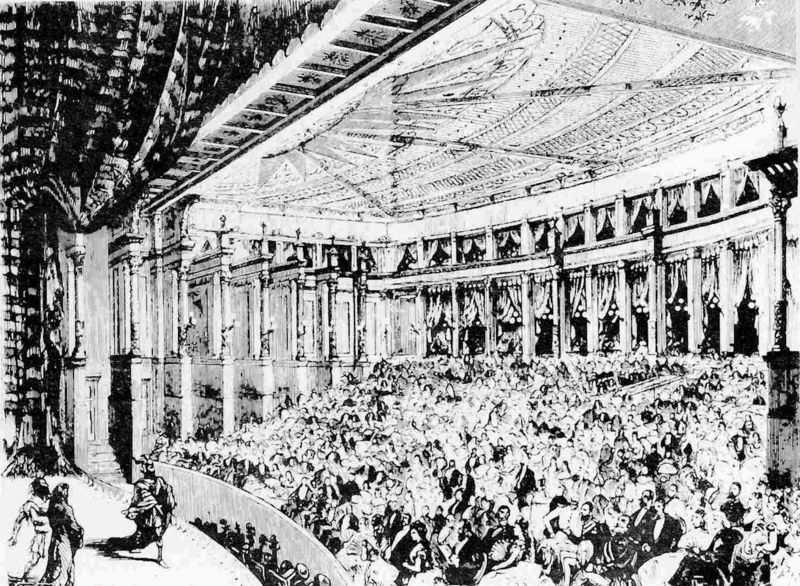Within Wagner's music, we have a clear view of both his ideal and anti-ideal types. Wagner's ideal man is fully masculine, capable, physically strong, pious, and self-sacrificing. The counter-type to this image is an effeminate, impotent, weak, and imitative person. Given his opinions in Das Judenthum in der Musik, it is not difficult to see exactly which people Wagner codes as anti-heroic counter-types.
But can we take one more step and extend Wagner's typology into a broader "national" context? Obviously, outside Bayreuth, Wagner never established anything near the common definition of a state. In this case, however, nation would not mean state, nor would it refer to a particular ethno-linguistic group. In Benedict Anderson's understanding, a nation would simply be a "political community imagined as both inherently limited and sovereign" (Anderson 1991, 6). Even within that definition, however, there is room for some clarification. First, the "word" political should not be restricted to its common equation with "administrative." While a political community may have a hierarchy, it does not need to have a codified, administrative one: take the family for an example of a more atomic form of political community.
If Wagnerianism is to fit Anderson's definition, it would also need to be limited. Indeed, Wagner's philosophies on music, gender, and ethnicity are both limited and limiting in that they establish both the community's in-and out-group. These rules are set and prevailing. Anyone part of a "Wagnerian nation" would hold Wagner's beliefs as their own and would be beholden to a strict value system.

Sovereignty is a much thornier word. In the sense that Wagnerianism has no method through which it can assert administrative control over any of its followers, it does not qualify as sovereign. But the ideals and values of Wagner superordinate all others and therefore can be theoretically sovereign. Wagner and his "new mythology" created a value system which groups of people were able to, and did, follow. This would be similar to what Anderson would call the "horizontal comradeship" around a particular ideal, or, in this case, a figure and his ideals.
In that sense, Wagnerianism can, indeed, be a form of nationalism in that it creates restrictive value systems by which a given group of people can be organized. This philosophical nation rendered itself as generations of performers, composers, writers, and critics who judged all other music based on this shared mythology and set of ideals.